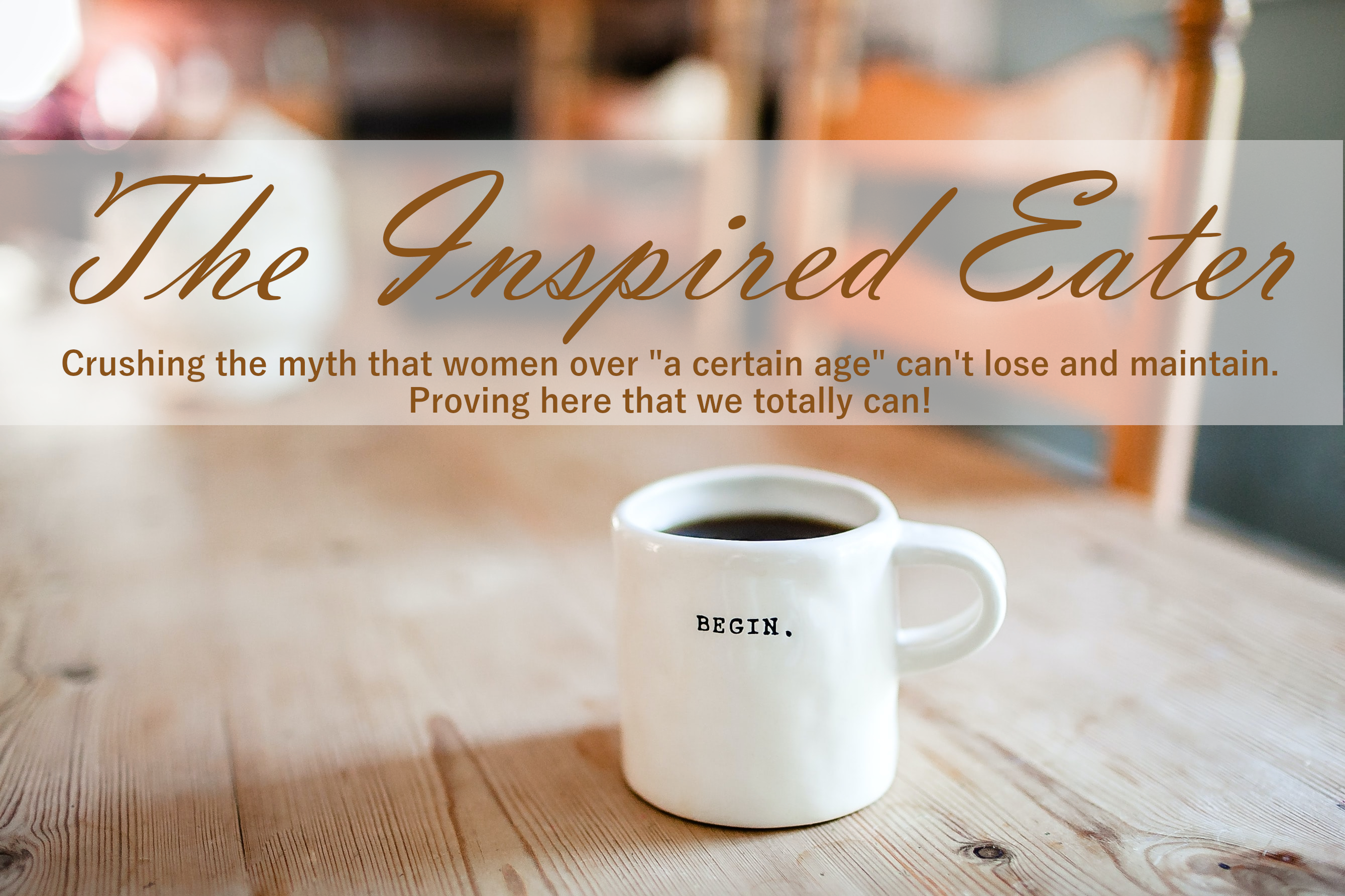Candy has been a tough one for me this year, but I still haven’t yet raided the Halloween stash.
Pearl One
In 2010, my scarfer, twin six-year-olds, pup Ollie and I moved to the gorgeous state of Virginia in the U.S. We were so excited to be in a new state, new coast and have – after a lifetime in California – brand new experiences. All true, but also true: I was in a mild, persistent state of depression every day for the first eight months.
I’m sharing the whole truth of the situation because I want you to know that you can stay on the Smart Eating Path even when circumstances are difficult. In fact, looking at ways to engage with our obstacles and not just drown them in ice cream, ends up making us stronger in the long run.
“Excusitis” is what the author David J. Schwartz calls a tendency to look for the excuse in his book The Magic of Thinking Big. Excuses like “I’m bored of thinking about food all the time. I’m done!” or, “I have a chronic disease so forget smart eating for me.” One woman said, “when my grand kids visit, they want the junk-food at eye-level so it’s always at our house. I end up eating their leftovers!”
Hey, we’ll throw anyone under the bus looking for a good excuse.
Here’s what’s really happening: our cavewoman is throwing excuses at our prefrontal brain hoping one will stick. The cavewoman is trying to sell us on: “I’ll get back into it more seriously when I’m in retirement”, or “once I have a new part-time job” or “after Nick comes home from the Army and I’m not so stressed.”
The Key Takeaway
My point is that when I was losing and later preserving the loss, I didn’t let anything get in the way. Nothing came before my weight loss. I ran with the attitude of failure is not an option. I was on a mission and took my job very seriously. The same attitude came with me when i started preserving the loss.
To access your wisdom around giving up, meta-notice how you’re managing a particular situation and journal-write to these prompts:
- What’s happening – from big to small — in your life right now?
- Do you have your own back during difficult times?
- When you think about your life and what you’re dealing with do you downplay the significance?
- Why did you want to join the Smart Eating Lifestyle in the beginning? Does your why need to be strengthened? Could it have gotten weaker while you weren’t watching?
- Have you ever unconsciously jumped off the Smart Eating Path for a bit of time? How about consciously?
- How many jumping off situations can you number?
- Can you see a pattern to the times when you jumped off the path? What do the times have in common?
- Do you tend to let “holiday eating” become a problem?
- If you need a reason to get off the Smart Eating Path, what are you needing, what’s happening in your life right now?
The plan is always to shift away from “life is happening TO me” to “I’ve made a decision about my smart eating life.” Once you’ve been preserving your loss for maybe five years (or more) a traumatic event could develop in your life and — because your habits are so strong — you won’t seek comfort in food. 🎃
Pearl Two
Women don’t like the word “aggression” paired with our name. We prefer to see ourselves as assertive, focused, kind and polite. But to lose weight after age 50 with the plan to preserve the loss forever, we need to bring our best mama-lion energy to our trek up the forever-loss mountain. 🎃
Pearl Three
Sequencing is taken directly from Cognitive Behavioral Therapy (CBT). The purpose of sequences is to help us move from reacting to circumstances to responding. I encourage you to do a sequence a day in your journal. Powerful stuff.
Default Sequence
- Situation (something very concrete): The Scarfer – he loves his nickname — leaves stuff on an empty kitchen counters or tables.
- Thought: OMG, can this person not tidy up after himself??
- Feeling: Total irritation.
- Action: Ticked off, I clean has much of his clutter as I can.
- Result: I’m mad, he’s confused and there’s still clutter as far as the eye can see.
Chosen Sequence
- Situation (something very concrete): The Scarfer leaves stuff on an empty kitchen counters or tables.
- Chosen Thought: I’ve started to think that the “clutter-gene” vs. “tidy gene” is built into us. Because I have two sons: one cluttery, the other tidy and yet they both appreciate a clean home. Really, The Scarfer is like the absent-minded professor and thinking of him in that term also helps to remember.
- Feeling: a deeper understanding about the clutter. Also meta-noticing that I give my sons more compassion about the clutter vs. The Scarfer.
- Action: We talk in kind tones about how to keep the dining room clutter down.
- Result: Things a tad cleaner, and I’m a tad happier. 🎃
Pearl Four
Books love us and want us to be happy
I have to say, one of the perks of getting older is that my memory is good enough that I know titles that I’ve read before, but can’t remember that story line. lol. So I can read and love them all again. If you haven’t read theses three Amor Towles’s books, you’re in for some great reading!
A Gentleman in Moscow by Amor Towles. I love novels that aren’t just an absorbing read, but also have a current of history living under the actual story. I turn the last page of an Amor Towles’ novel a better person or parent or friend; and definitely a more knowledgeable student of history. Holding its own with Gentleman is his second book titled Rules of Civility. Towles’s newest book Table tor Two a page turner of short — but really good — stories. 🎃
Pearl five
The middle is messy, but it’s where the magic happens.” 🎃
Brene Brown
Have a smart eating week,
♥, Wendy
You know the scoop: I’m an Amazon affiliate. If you buy from a link in my post, I’ll receive money, but the arrangement won’t cost you a dime.
Are you new to the Inspired Eater? Welcome!! This blog won’t make much sense until you first read the Aunt Bea post (and you’ll find Aunt Bea on this page to the right under my short bio). On your cell you’ll see it immediately following the first post. After you enter your email address, the Aunt Bea article will be sent to your email’s inbox. If it’s not there, you might check the spam folder. And always feel free to email me at Wendy@TheInspiredEater.com and I’ll get Aunt Bea right to you!!
I am not an expert, a doctor, a surgeon, a nurse or a nutritionist: the information within TheInspiredEater.com is based solely on my personal experience and is not intended to be used as a substitute for professional medical advice, diagnosis, or treatment.


6 Comments
Ooooh – Gentleman in Moscow is one of my very favorite books! You described it just as I always think of it – I feel like a better person after I’ve read it. (And I’ve read it several times, so I must be way better now, right?!) Thanks for the great sequence this time too. That’s a topic that’s been batted around at my house before, and your insights are really helpful! Really, thanks for everything! And Happy Almost November!
Thanks Barbara! Yeah the clutter is tough.♥
Thank you. Thank you SO much!
I hope you’re doing well! ♥
I love these journal prompts. I am going to work on them tonight! Thanks so much for sharing.
That’s so good to hear re: the prompts. Others have said the same which means I’ll write them more.
Thank you for writing!!